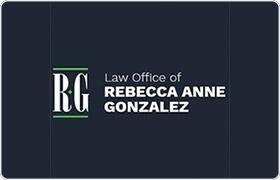Bergheim Divorce & Family Law Lawyer, Texas
Sponsored Law Firm
-
 x
x

Click For More Info:
-
Law Office of Rebecca Anne Gonzalez
10101 Reunion Place Suite 615 San Antonio, TX 78216» view mapDivorce & Family Law Continuing The Gonzalez Legacy
At the Law Office of Rebecca Anne Gonzalez, my goal is to make certain you feel taken care of. My team and I work hard to protect what is important to you.
800-735-1530
Lawrence B. Shallcross (larry)
Estate Planning, Bankruptcy, Construction, Family Law, Business
Status: In Good Standing Licensed: 40 Years
Lawrence B Shallcross
Estate Planning, Bankruptcy, Construction, Family Law, Business
Status: In Good Standing Licensed: 50 Years
Josue M. Martinez
Commercial Real Estate, Family Law, Criminal, Elder Law
Status: In Good Standing Licensed: 41 Years
William Mcnaught
Litigation, Collaborative Law, Family Law, Business & Trade
Status: In Good Standing Licensed: 41 Years
F. Terry Callahan
Insurance, Personal Injury, Elder Law, Family Law
Status: Inactive Licensed: 51 Years
 Rebecca Gonzalez San Antonio, TX
Rebecca Gonzalez San Antonio, TX Practice AreasExpertise
Practice AreasExpertise
